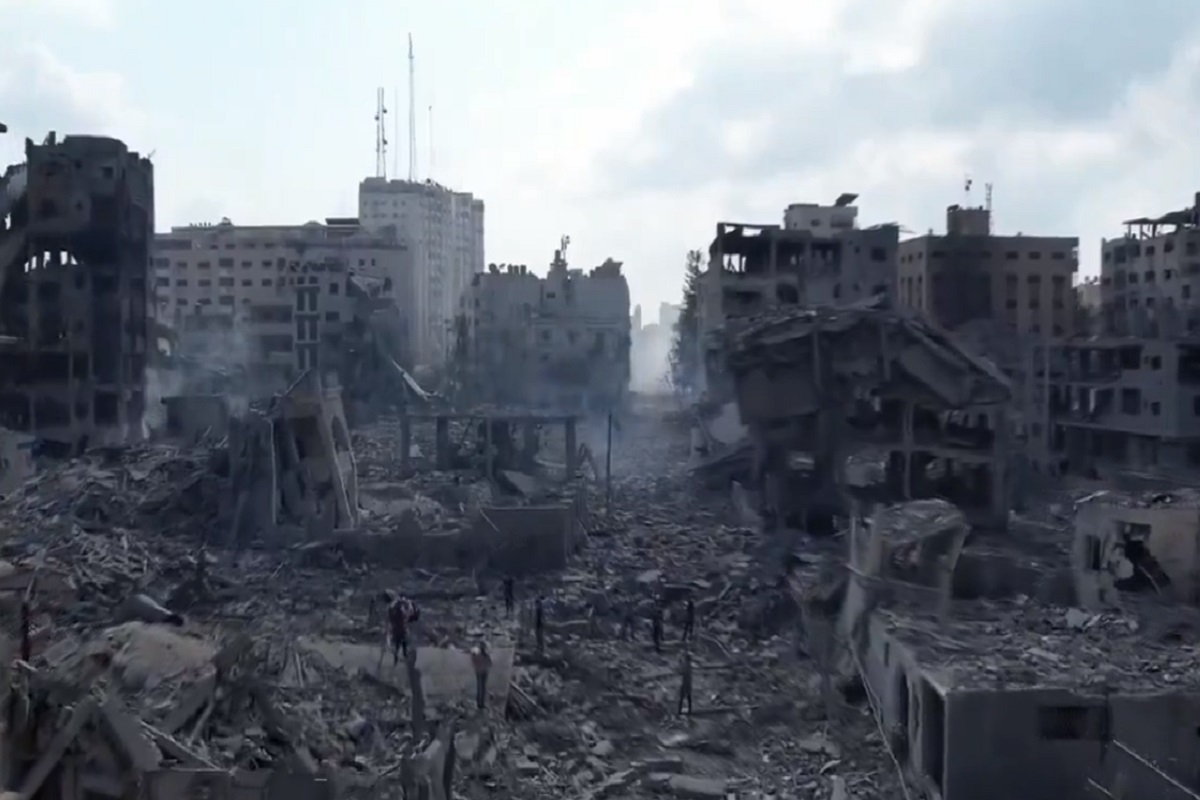In the hallowed halls of the United Nations, where decisions shape the destiny of nations, the US veto of an Arab-backed resolution demanding an immediate humanitarian ceasefire in the Israel-Hamas conflict has ignited a storm of controversy. The decision, ostensibly rooted in concerns over on-going negotiations for the release of hostages in Israel, raises crucial questions about the delicate balance between diplomatic pragmatism and the urgent need for humanitarian intervention. The voting outcome, with 13 nations in favour, the US dissenting and the UK abstaining, underscores the global consensus on ending the devastating war that has claimed thousands of lives, predominantly Palestinian. The proposed Arab resolution sought an immediate ceasefire, a lifeline desperately needed in Gaza, where the majority of casualties are innocent civilians, including women and children. On the surface, the US stance appears to prioritise the intricacies of hostage negotiations over the immediate cessation of hostilities.
US Ambassador to the UN, Linda Thomas-Greenfield, emphasised the need to avoid negatively impacting sensitive negotiations and suggested that their proposed resolution would pressure Hamas into accepting a deal and secure a temporary pause for humanitarian aid. However, critics argue that the US position inadvertently sends a distressing message to the war-torn region. By vetoing the ceasefire resolution, they contend that the US tacitly endorses the continuation of what has been labelled a genocidal war machine by Palestinian Ambassador Riyad Mansour. The implicit argument is that prioritising negotiations over an immediate cessation enables further suffering and loss of innocent lives. The rival US resolution introduces a nuanced perspective, emphasising a temporary ceasefire linked to the release of hostages. While this approach seeks to address both humanitarian concerns and security issues, it draws scepticism. The absence of a direct link between hostage releases and a ceasefire prompts concerns that Hamas could exploit the situation, securing a pause without committing to concrete actions. Israel’s Ambassador, Gilad Erdan, challenges the prevailing narrative that a ceasefire is a panacea, arguing that it would provide Hamas an opportunity to regroup. This underscores the complexities surrounding calls for immediate cessation in conflicts where deep-rooted animosities and strategic considerations complicate straightforward solutions.
Advertisement
The proposed resolutions also highlight the enduring tension between the US and Israel on the two-state solution. The US reaffirms its commitment to a vision that Israel’s Prime Minister, Benjamin Netanyahu, opposes. This discrepancy not only reflects underlying diplomatic fractures but also poses questions about the coherence of international efforts to address the Israel-Palestine conflict. The Arab Group could take their resolution to the General Assembly, where approval is likely, albeit non-binding. The question remains ~ can the delicate balance between diplomatic negotiations and immediate humanitarian needs be struck, or will the vetoed resolution become another page in the tragic chronicles of conflict in West Asia? The answer may well determine the fate of those caught in the crossfire.









